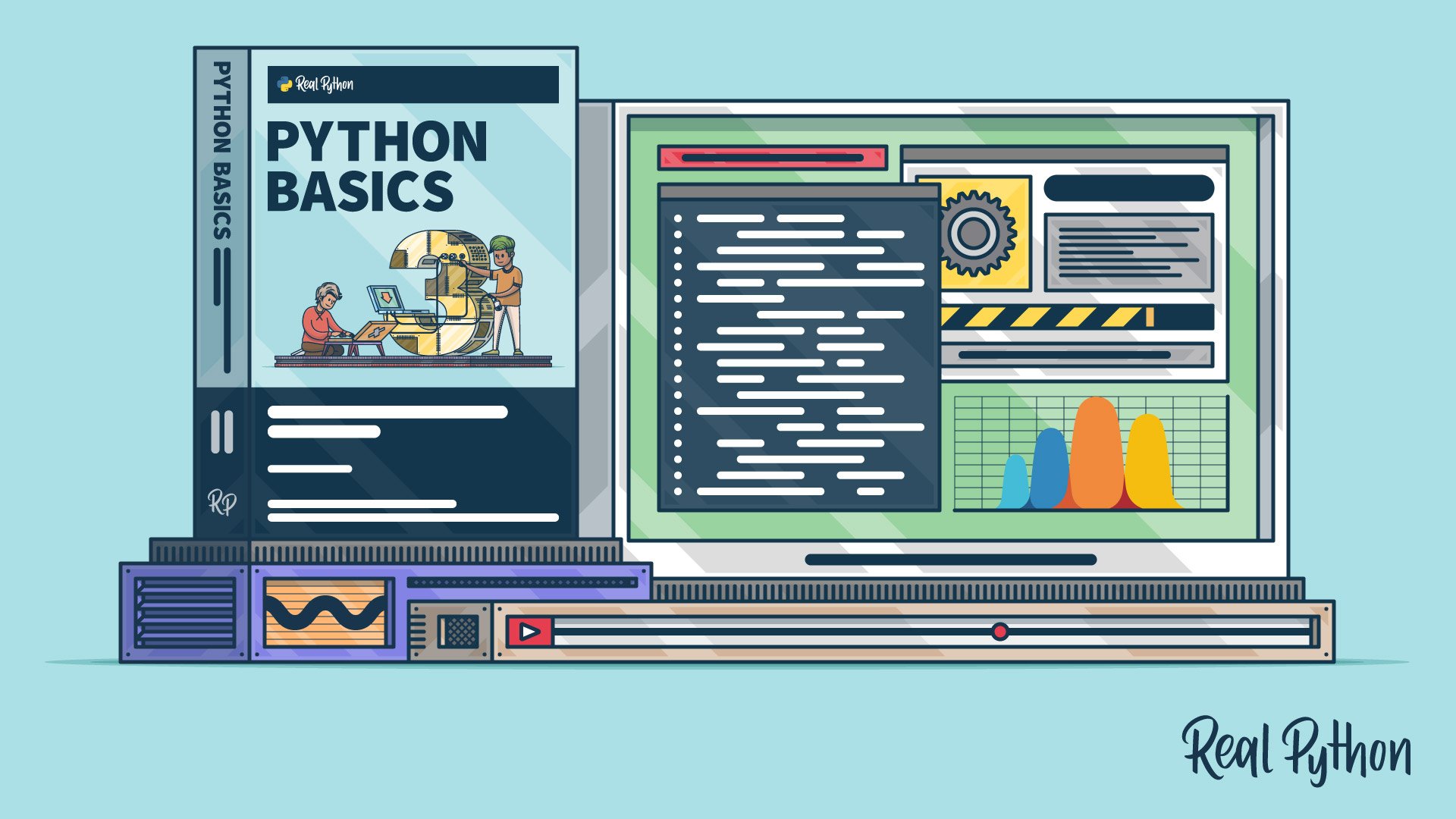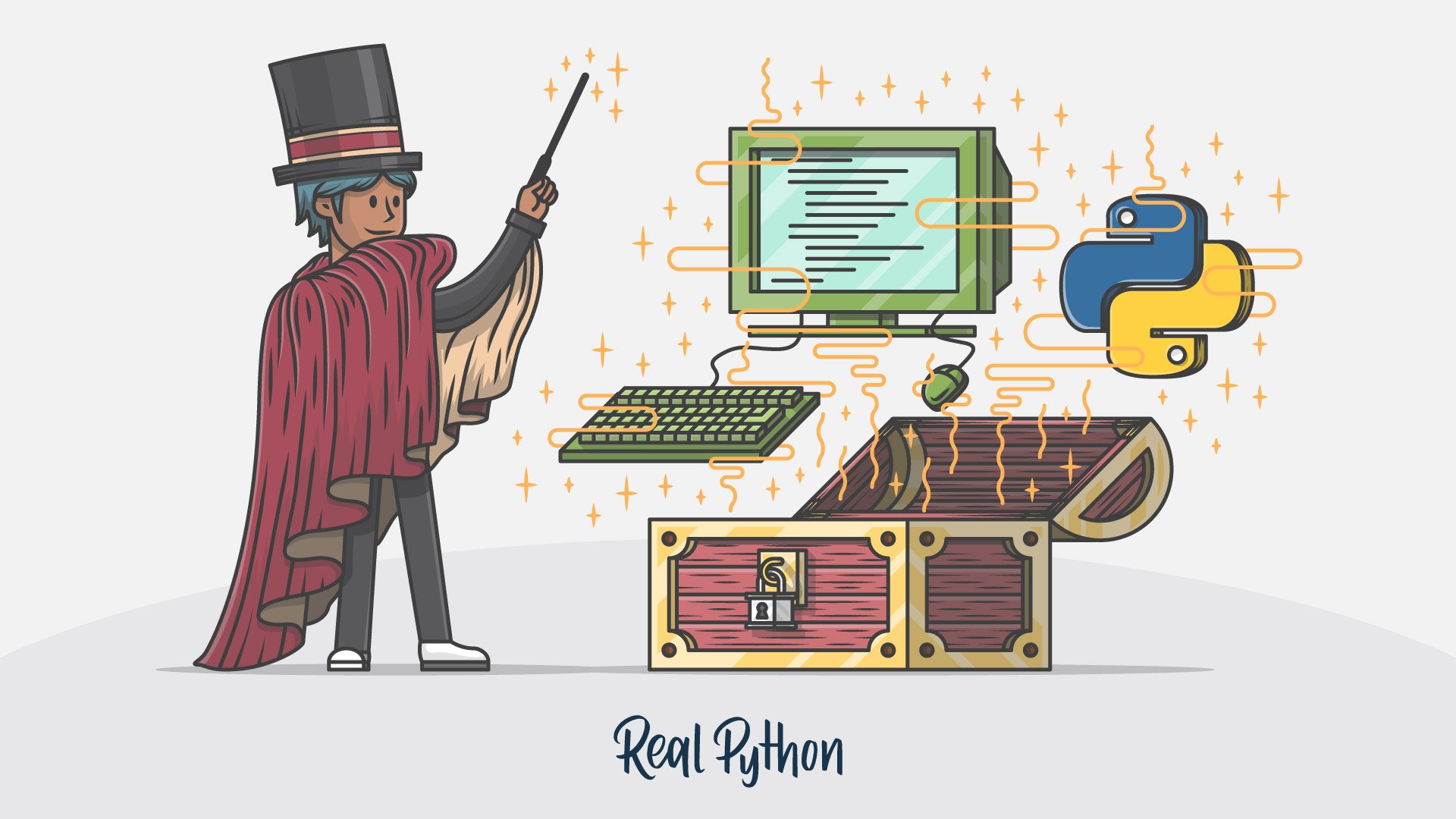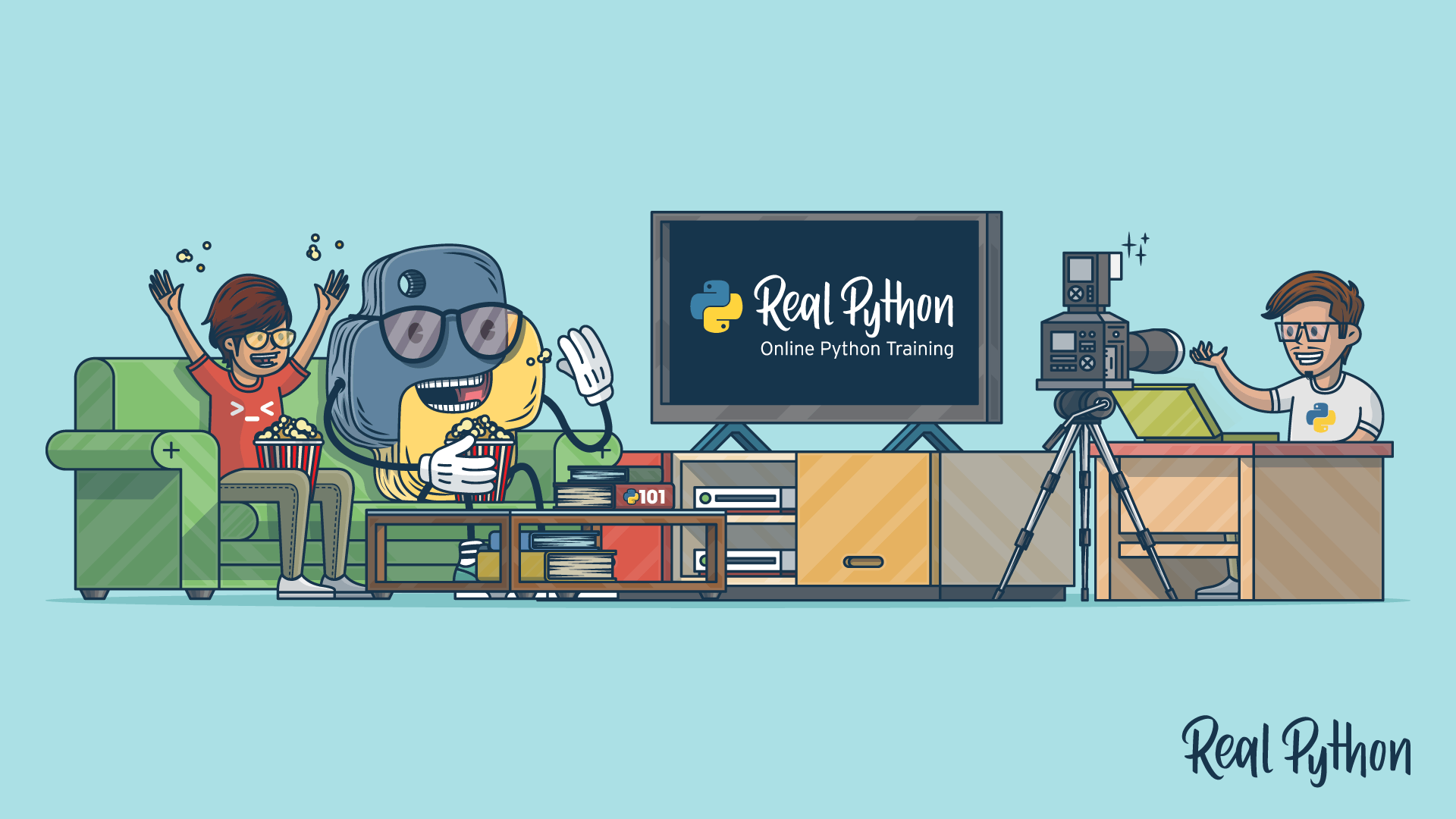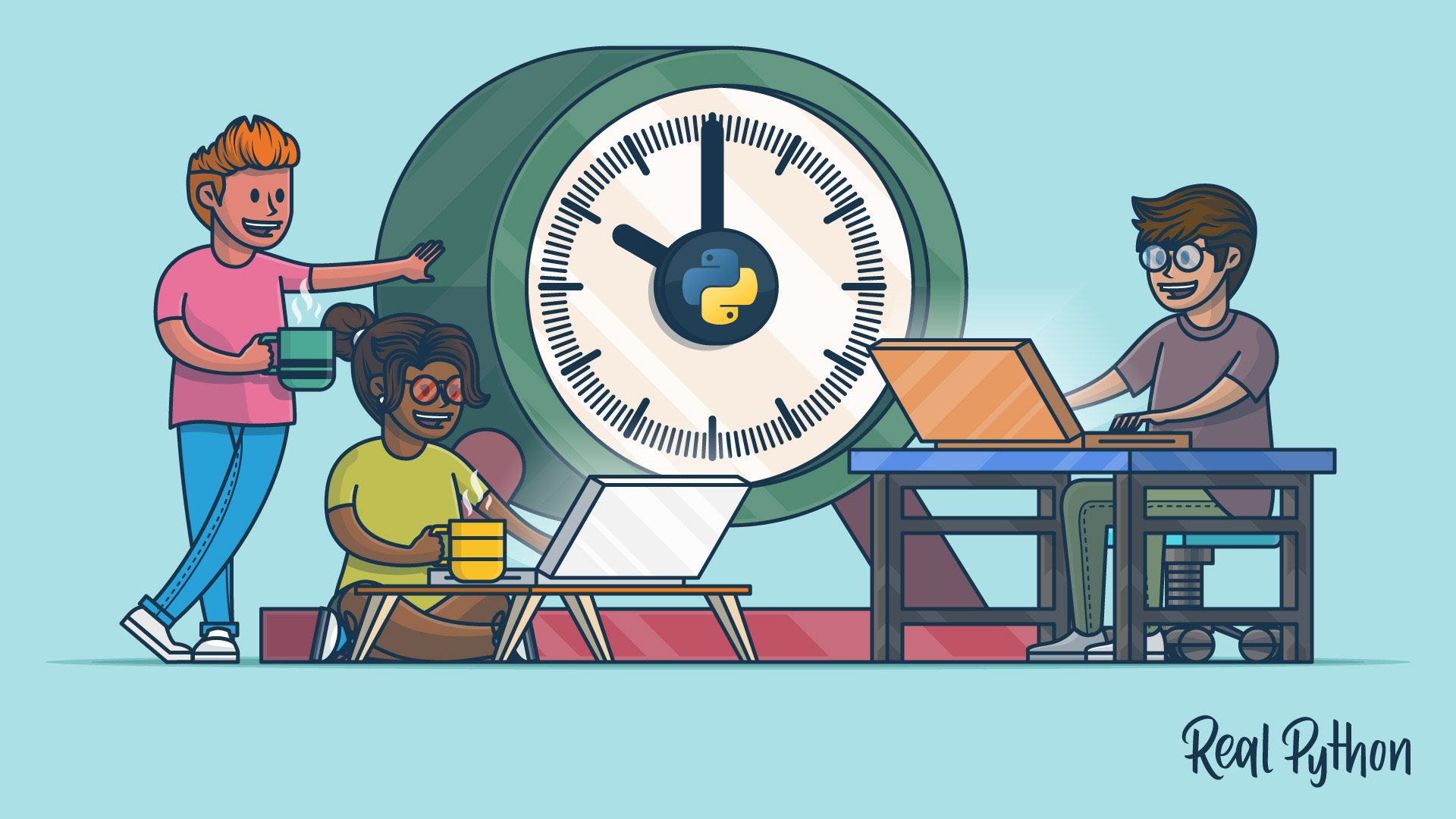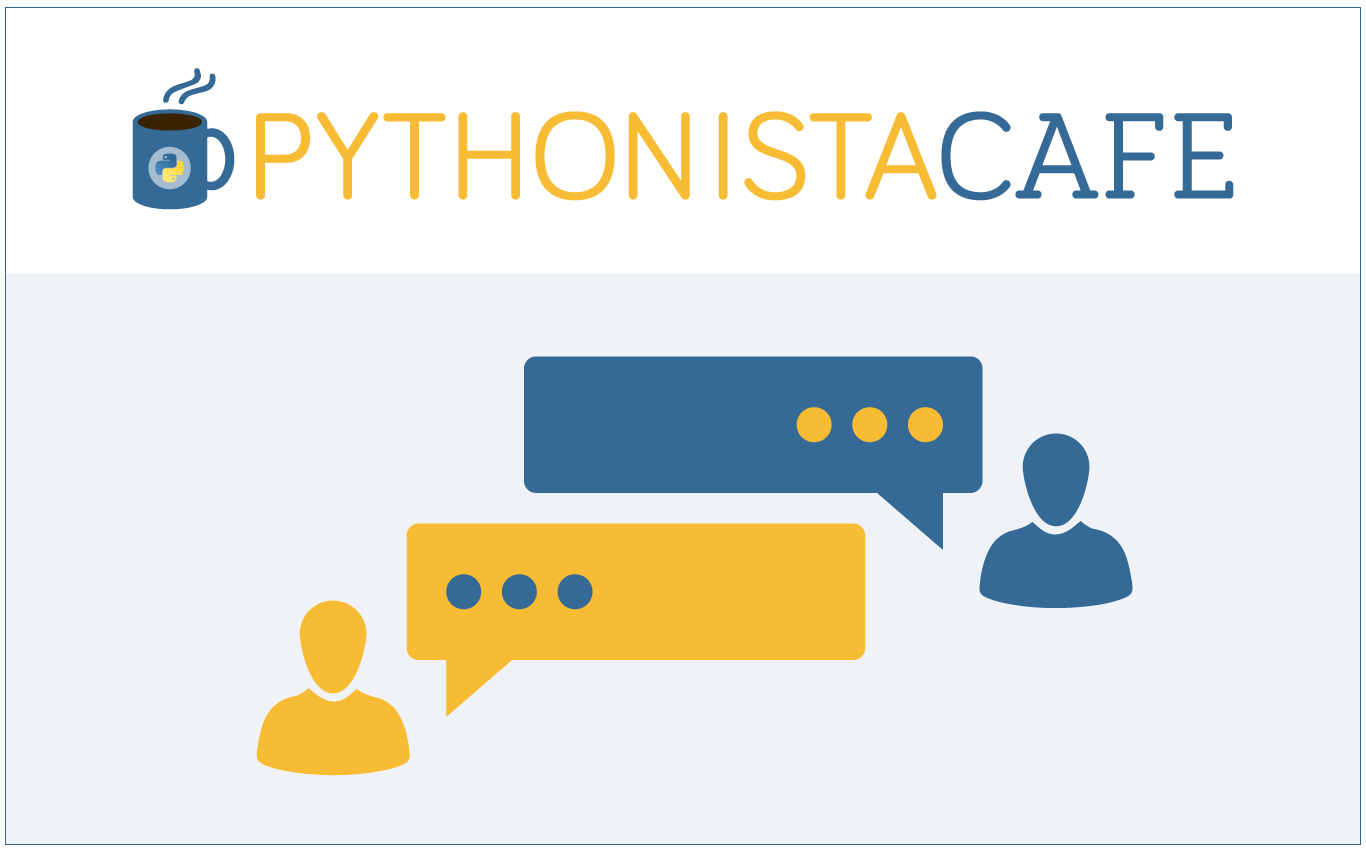Python Basics Book (Supporting Materials & Bonus Resources)
Learning Path ⋅ Skills: Python 3 Fundamentals, Real-World Projects

This learning path is meant to accompany our Python Basics book. It will guide you through the exercises, quizzes, and other bonus resources in the book. Master fundamental concepts for Python beginners that will help you get started on your journey to learn Python.
With this book you’ll know “enough to be dangerous” with Python, fast. Far from a dry reference, it breaks down the core concepts you really need to know into bite-sized chunks, written in plain English.
Note: This learning path requires that you own a copy of our book Python Basics: A Practical Introduction to Python 3. (The contents for the individual book chapters can be found in the book.)
If you don’t own a copy yet, you can learn more about the book and purchase your copy by clicking here.
We’ve also adapted the chapters in the book into a series of on-demand video courses, available for Real Python members. With the course series you’ll learn by doing, with the guidance of experienced instructors showing exactly what to do through screen recordings:
Learning Path
Python Basics: Introduction to Python
17 Resources ⋅ Skills: Python 3 Fundamentals, Real-World Projects
Python Basics Book (Supporting Materials & Bonus Resources)
Learning Path ⋅ 19 Resources

Book
Python Basics
This learning path requires that you own a copy of our book "Python Basics: A Practical Introduction to Python 3". Click the link below to learn more & purchase your copy.

Book Chapter
Chapter 2: Setting Up Python
See step-by-step how to install a Python development environment on Windows, macOS, and Linux.

Book Chapter
Chapter 3: Your First Python Program
Now that you have the latest version of Python installed on your computer, it’s time to start coding. You'll write your first Python script, learn what happens when you run a script with an error, learn how to declare a variable and inspect its value, and learn how to write comments.
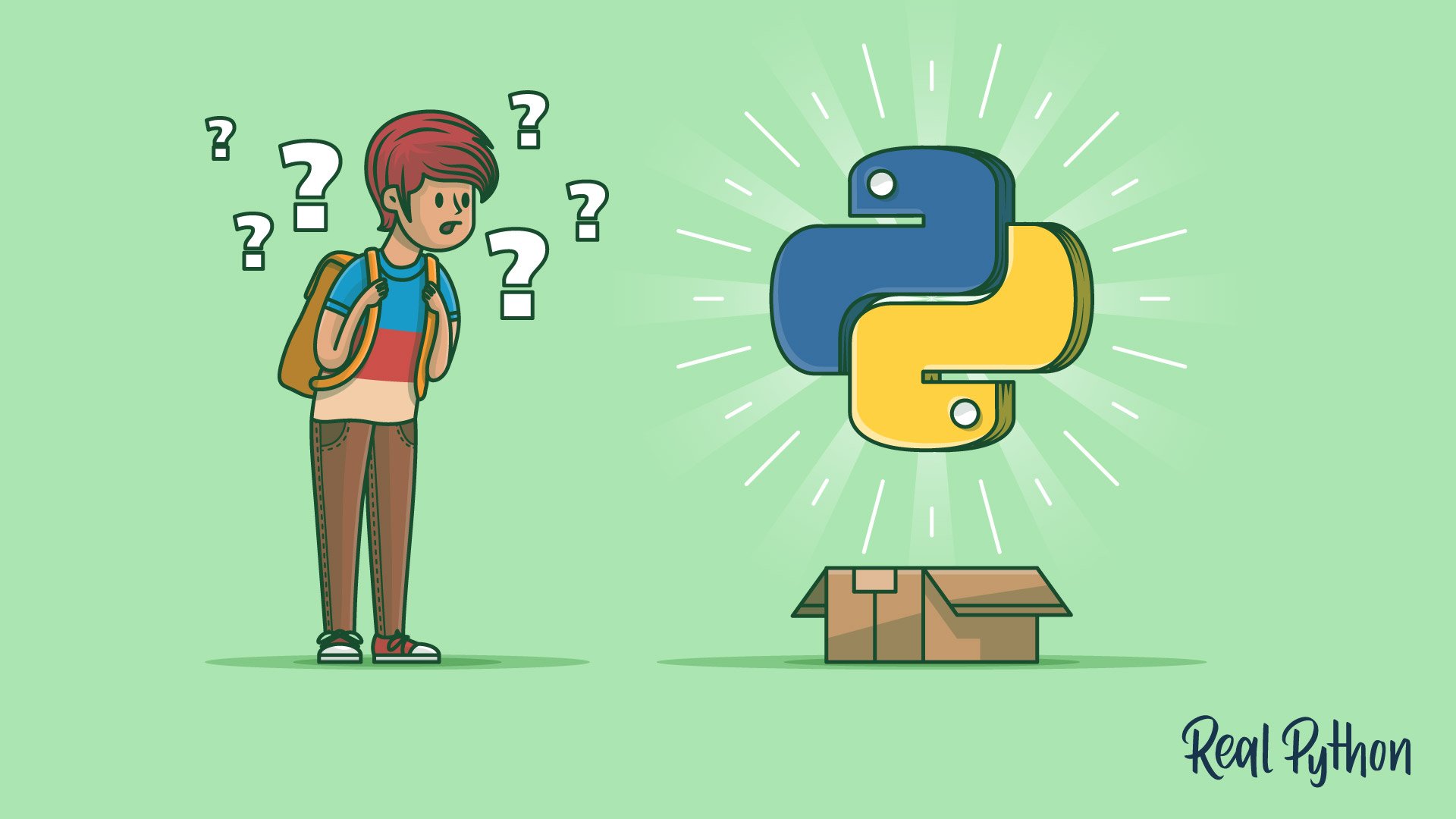
Interactive Quiz
Check Your Learning Progress

Interactive Quiz
Check Your Learning Progress

Book Chapter
Chapter 4: Strings and Methods
Learn how to work with strings and the fundamentals of using Python methods.

Coding Exercise
Exercises & Challenges

Interactive Quiz
Check Your Learning Progress

Coding Exercise
Exercises & Challenges

Book Chapter
Chapter 5: Numbers and Math
How to work with Python's built-in number types, how to round numbers in Python, and how to format and display numbers.

Interactive Quiz
Check Your Learning Progress

Coding Exercise
Exercises & Challenges

Book Chapter
Chapter 6: Functions and Loops
In this chapter, you will learn how to define and use your own custom functions as the core building blocks of your programs. You will also learn another fundamental aspect of programming: how to loop over data.

Interactive Quiz
Check Your Learning Progress

Coding Exercise
Exercises & Challenges

Book Chapter
Chapter 7: Finding and Fixing Code Bugs
A debugger is a program you can use to better understand where bugs are located in your code. In this chapter, you'll learn how to use IDLE's built-in debugger.

Interactive Quiz
Check Your Learning Progress

Book Chapter
Chapter 8: Conditional Logic and Control Flow
Learn the mechanics of writing programs that do different things based on different conditions.

Interactive Quiz
Check Your Learning Progress

Coding Exercise
Exercises & Challenges

Book Chapter
Chapter 9: Tuples, Lists, and Dictionaries
In this chapter, you will meet three new and important data structures: Lists, Tuples, and Dictionaries.

Interactive Quiz
Check Your Learning Progress

Coding Exercise
Exercises & Challenges

Book Chapter
Chapter 10: Object-Oriented Programming (OOP)
In this chapter you will learn how to declare your own custom objects in Python and then use those objects to structure your program according to the principles of object-oriented programming (OOP).

Interactive Quiz
Check Your Learning Progress

Coding Exercise
Exercises & Challenges

Book Chapter
Chapter 11: Modules and Packages
In this chapter you’ll learn how to create your own modules, use modules in another file via the “import” statement, and organize several modules into a package.

Interactive Quiz
Check Your Learning Progress

Coding Exercise
Exercises & Challenges

Book Chapter
Chapter 12: File Input and Output
Learn how to work with files in Python. Working with files is an essential skill that is used by Python programmers working in any discipline, including web development, business automation, and data science.

Interactive Quiz
Check Your Learning Progress

Coding Exercise
Exercises & Challenges

Book Chapter
Chapter 13: Installing Packages With Pip
In this chapter you will learn the basics of working with Pip and will use it to install your first package.

Interactive Quiz
Check Your Learning Progress

Book Chapter
Chapter 14: Creating and Modifying PDF Files
In this chapter, you will learn how to read from, write to, and modify PDF files with Python.

Interactive Quiz
Check Your Learning Progress

Coding Exercise
Exercises & Challenges

Book Chapter
Chapter 15: Working With Databases
In this chapter, you will learn about a SQL database, called SQLite, that comes with every Python installation.

Interactive Quiz
Check Your Learning Progress

Coding Exercise
Exercises & Challenges

Book Chapter
Chapter 16: Interacting With the Web
Web scraping is the process of collecting and parsing raw data from the web.

Interactive Quiz
Check Your Learning Progress

Coding Exercise
Exercises & Challenges

Book Chapter
Chapter 17: Scientific Computing and Graphing
In this chapter, you will get an introduction to two of the most powerful Python packages for scientific computing and data science: NumPy and Matplotlib.

Interactive Quiz
Check Your Learning Progress

Coding Exercise
Exercises & Challenges

Book Chapter
Chapter 18: Graphical User Interfaces
In this chapter you will focus on learning the basics of creating a GUI with Python.

Interactive Quiz
Check Your Learning Progress

Coding Exercise
Exercises & Challenges

Book Chapter
Chapter 19: Final Thoughts and Next Steps
Congratulations! You've made it to all the way to the end of this book. You already know enough to do a lot of amazing things with Python, but now the real fun starts: it's time to explore on your own.
Got feedback on this learning path?
Looking for real-time conversation? Visit the Real Python Community Chat or join the next “Office Hours” Live Q&A Session. Happy Pythoning!
